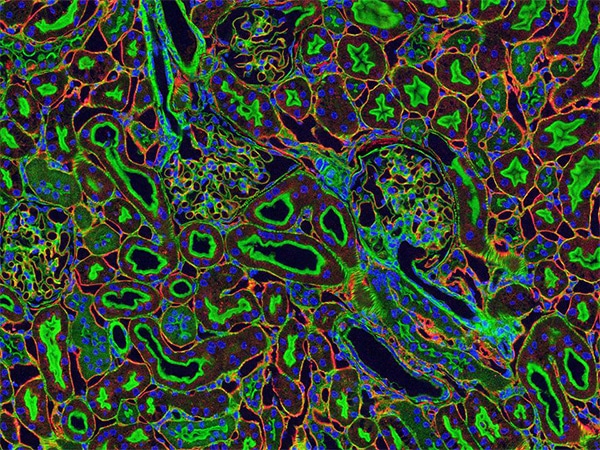Increasing Treatment Options for Kidney Cancer Patients
The approval provides a third immunotherapy-based combination treatment for patients newly diagnosed with advanced renal cell carcinoma, the most common form of kidney cancer.
The U.S. Food and Drug Administration (FDA) recently approved a combination of the immunotherapeutic avelumab (Bavencio) and the molecularly targeted therapeutic axitinib (Inlyta) for treating patients newly diagnosed with advanced renal cell carcinoma, which is the most common form of kidney cancer.

With this approval, there are now three immunotherapy-based combination treatments for patients newly diagnosed with advanced renal cell carcinoma. The first of these is a combination of two immunotherapeutics, ipilimumab (Yervoy) and nivolumab (Opdivo). It was approved for the treatment of intermediate- or poor-risk, previously untreated advanced renal cell carcinoma in April 2018. The second is a combination of the immunotherapeutic pembrolizumab (Keytruda) and axitinib for the treatment of newly diagnosed advanced renal cell carcinoma.
Kidney cancer is the eighth most commonly diagnosed cancer in the United States, according to data from the National Cancer Institute. There are expected to be 73,820 new cases in the United States in 2019 alone. Patients with metastatic kidney cancer have a particularly poor prognosis; the five-year relative survival rate for this form of the disease is just 12 percent.
Renal cell carcinoma accounts for about 90 percent of kidney cancers. Many patients newly diagnosed with advanced renal cell carcinoma are first treated with one of several FDA-approved molecularly targeted therapeutics called multi-kinase inhibitors; one of the most commonly used of these therapeutics is sunitinib (Sutent). Another of these therapeutics is axitinib (Inlyta).
The FDA approved the combination of axitinb and avelumab as a new initial treatment for advanced renal cell carcinoma based on results from the randomized, phase III JAVELIN Renal 101 clinical trial. The results, which were published in the New England Journal of Medicine, showed that treatment with the axitinib–avelumab combination significantly increased the time to disease progression compared with sunitinib. The median progression-free survival was 13.8 months for patients who received avelumab and axitinib, compared with 8.4 months for patients who received sunitinib.
Avelumab targets the protein PD-L1. In doing so, it releases a brake called PD-1 on cancer-fighting immune cells called T cells. Because it targets the immune system and not molecules specific to a particular cancer, it has relatively broad utility in the treatment of cancer.
Before its approval for treating renal cell carcinoma, avelumab was approved for treating certain patients with bladder cancer and Merkel cell carcinoma in May 2017 and March 2017, respectively.
The FDA approval was rendered on May 14, 2019. Find out more about the decision on the FDA website.
